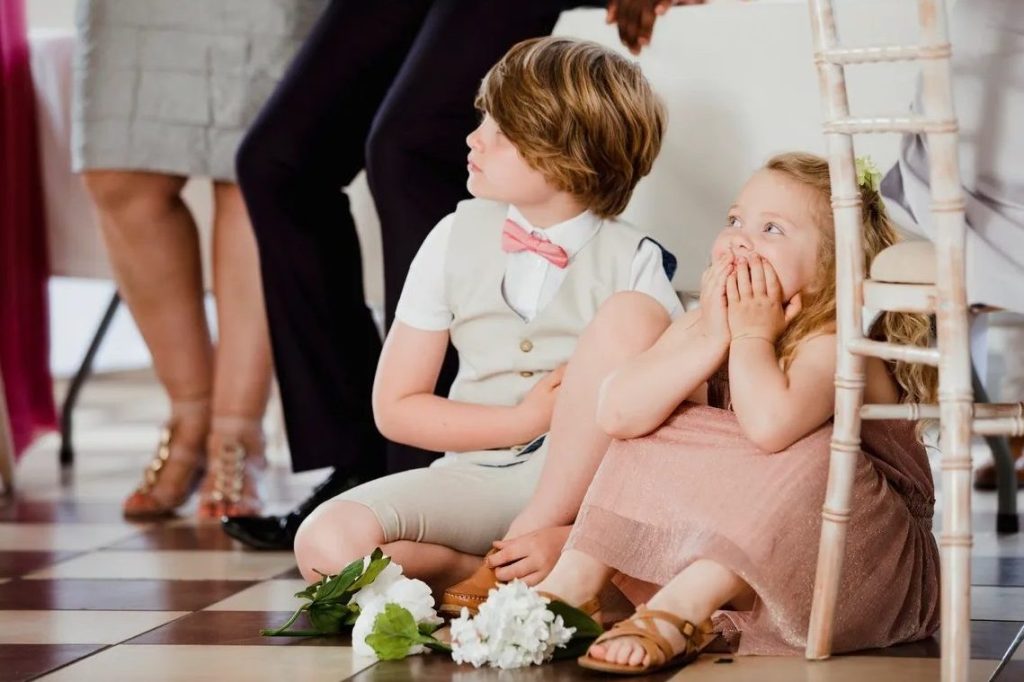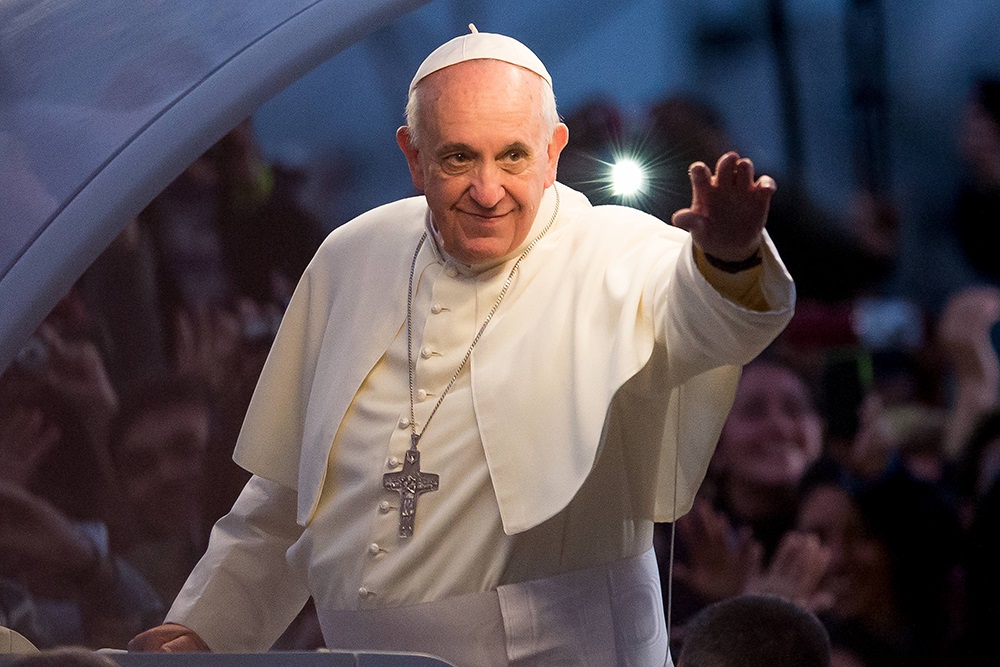Since becoming a mother, I have come to dread weddings. Children are often no longer welcome at nuptials. My children have been banned from several already, and we have attended several others where they might as well have been, so inhospitable were they to young families. I find it indescribably depressing and utterly baffling that small children would be unwelcome at such a momentous family celebration. The concept seems to contradict the very purpose of a wedding — to bring two families together for the creation of another. Perhaps as a result of the decline of religion, weddings are no longer for families — they are essentially very, very expensive dance parties for the couple’s young social group. The main event is a dance that can go on until the next morning — inhospitable not only to small children but also to great grannies with wheelchairs and 9 pm bedtimes. Fair enough if the bride and groom want to party late into the night — but why prevent the whole family from enjoying everything before that? When I was little, I adored weddings — indeed I am sure I anticipated them as much as the rest of the family. The thrill of seeing the bride walk down the aisle, and of watching my parents and aunts and uncles dance — these are very strong and happy memories. Excluding children from weddings is essentially saying that they are a nuisance and that the party would be better without them.
I don’t have the luxury of driving several hours away from home and leaving the baby with a sitter for two days
Granted, there do seem to be financial reasons for excluding children — venue hire costs are extortionate, and many of them have figured out that charging per head, some claiming “health and safety reasons.” Children end up costing as much as an adult. This financial predicament turns a family event into a cost-benefit analysis — why should little Poppy or Archie be invited when they can’t even drink the champagne? A second reason for excluding children seems to be that brides see children as competition for their attention and adoration. “I want parents to enjoy themselves without responsibility,” is often an excuse. What that really means is, “I want everyone including parents of small children to give me their undivided attention.” Everything is centered on the bride and groom — and God forbid little Poppy cries during their vows.
I was a guest at a wedding a few years ago where I was told explicitly — by the vicar — that my child was a nuisance. As I settled with my baby into a pew near the door, the vicar came down the aisle and said to me, “If the baby becomes noisy, I’m sure you know you’ll have to leave.” Within minutes of the bride’s entrance, the baby began emitting loud chirps — a happy sound, but a distraction. I tucked the baby under one arm and maneuvered our stroller out of the door and out into the pouring rain. We waited in the dripping porch for the rest of the ceremony. The reception was just as inhospitable to children — there was nowhere to set a baby down amid the stilettos and hard marble floor. I left before dinner, feeling that I’d have been better off staying at home.
The thing is — and no one seems to understand this until they become parents — sometimes leaving a kid behind is not an option. I certainly don’t have the luxury of driving several hours away from home and leaving the baby with a sitter for two days — and what if the wedding is abroad? Recently my husband and I were invited to one out of the country, but my children were not. I replied, in what I thought was a reasonable manner, that I couldn’t go. It was a simple question of logistics. The bride then suggested that my family travel with me and I attend the wedding alone, while my husband and children stay in the hotel. I found it not only shocking but also mildly offensive that my family should be expected to travel hundreds of miles only to sit in a hotel room while I dance the night away. It struck me that weddings are now an excuse for the bride and groom to be selfish — it’s their day after all. They make rules and stipulations and expect scores of guests to follow them. If they wanted an exclusive, perfectly orchestrated event then let them have it — but don’t expect young families to turn up. The irony is that, on average, married couples will have a baby three years after their wedding. Many couples planning a wedding don’t think twice about what life is like with a baby — but very soon they will see how unfair and simply impractical it is to tell your friends and family with children not to bring them to their wedding.
This shift in cultural feeling towards children is not just because of the decline of religion — it is also a result of women’s ability and desire to have children later in life. Women are now starting their careers and waiting to marry, on average, until the age of thirty-three. Then a few years later, in their late thirties or early forties, they have a baby. People are living longer without children, and therefore don’t consider children in their social plans. Many of us are completely unaware of the enormous and profound changes that come with having a child, and of how much it limits your movements. Becoming a parent was the loneliest time in my life, partly because of all the weddings and parties from which I was excluded. By banning small children and young parents from such significant social events, you separate them from the rest of society. And after all, aren’t children the whole point?
This article was originally published on The Spectator’s UK website.


























Leave a Reply